But I knew one more thing. That people w ho denied who they were or where they had been were in the greatest danger
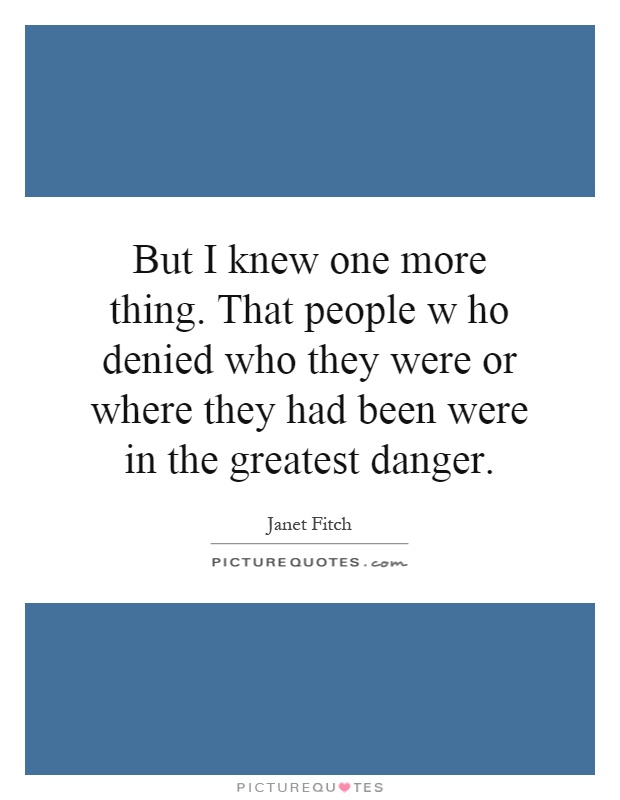
But I knew one more thing. That people w ho denied who they were or where they had been were in the greatest danger
In the world of Janet Fitch's novels, characters often grapple with their identities and pasts, struggling to come to terms with who they are and where they have been. Fitch's writing delves deep into the complexities of human nature, exploring the ways in which denial can lead to danger and destruction.The quote, "But I knew one more thing. That people who denied who they were or where they had been were in the greatest danger," speaks to the idea that denying one's true self or past can have serious consequences. In Fitch's novels, characters who try to bury their pasts or hide their true identities often find themselves in precarious situations, unable to escape the consequences of their denial.
One of Fitch's most famous works, "White Oleander," follows the story of Astrid Magnussen, a young girl who is sent to a series of foster homes after her mother is imprisoned for murder. Throughout the novel, Astrid struggles to come to terms with her traumatic past and the impact it has had on her sense of self. She is forced to confront the truth of who she is and where she comes from, ultimately finding strength in her own resilience and ability to survive.




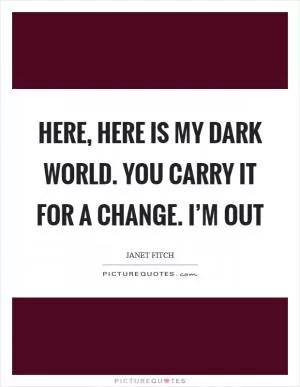




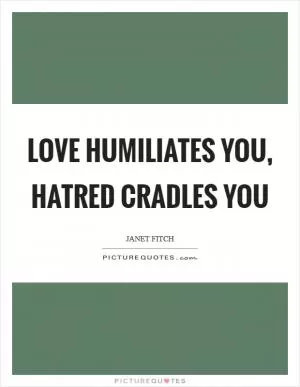
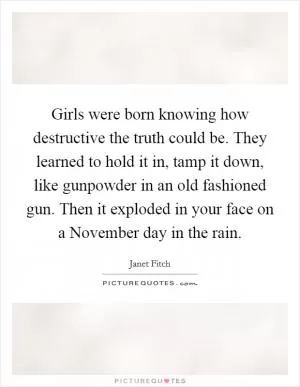
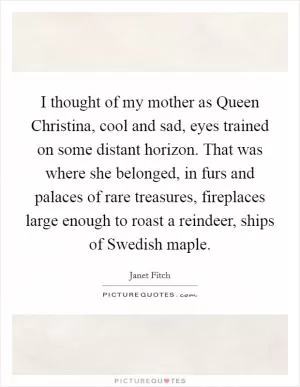
 Friendship Quotes
Friendship Quotes Love Quotes
Love Quotes Life Quotes
Life Quotes Funny Quotes
Funny Quotes Motivational Quotes
Motivational Quotes Inspirational Quotes
Inspirational Quotes